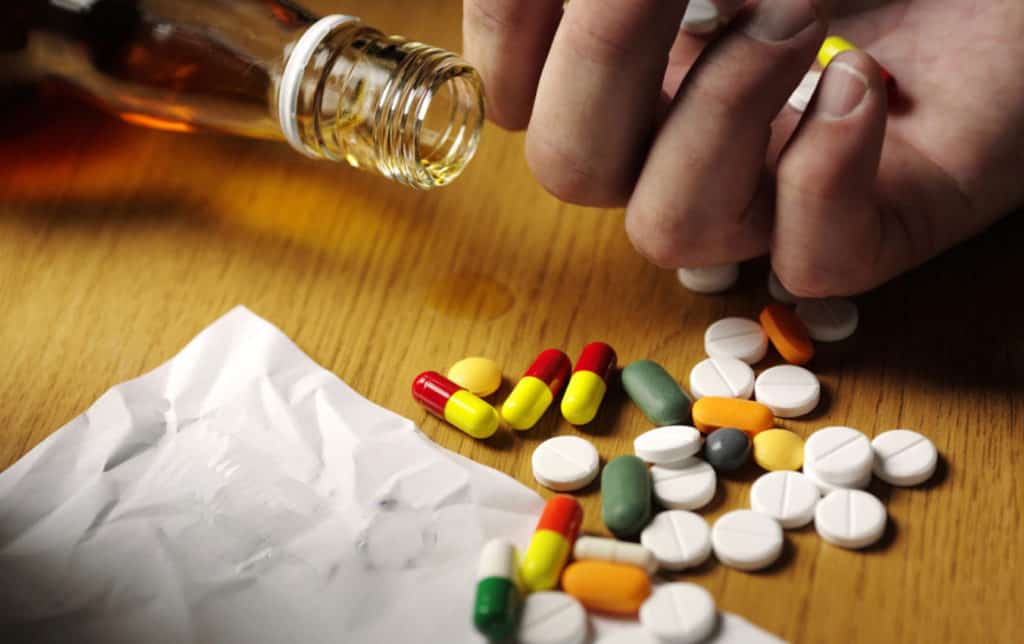What is Neuropsychopharmacology?
Neuropsychopharmacology is the branch of neurosciences devoted to the study of drugs that affect nervous tissue and alter behaviors. Specifically, the study of the effects of drugs on neurons, their synapses, and circuits is neuropharmacology, while the study of the effects of drugs on behaviors, including emotional and cognitive mental activities, is psychopharmacology; thus, these comprise neuropsychopharmacology as a whole. [1]
In a perspective published in Neuropsychopharmacology, leaders from the National Institutes of Health address how using appropriate language to describe mental illness and addiction can help to reduce stigma and improve how people with these conditions are treated in health care settings and throughout society. The authors define stigma as negative attitudes toward people that are based on certain distinguishing characteristics. More than a decade of research has shown that stigma contributes significantly to negative health outcomes and can pose a barrier to seeking treatment for mental illness or substance use disorders.

Get Your Life Back
Find Hope & Recovery. Get Safe Comfortable Detox, Addiction Rehab & Dual Diagnosis High-Quality Care.
Hotline(844) 597-1011Mental Illness
Thirty-five percent of people with serious mental illness in the U.S., and nearly 90% of people with substance use disorders, do not receive treatment. [2] The perspective authors point to evidence that stigma-related bias among clinicians can contribute to a treatment-averse mindset and to flawed clinical care, including failure to implement proven methods of treatment.

Further, when a person with a mental illness or substance use disorder continues to experience stigma, they may begin to internalize it. This “self-stigma” can lead to lower self-esteem and feelings of self-worth and can become an ongoing source of distress that may exacerbate symptoms and create barriers to successful treatment.
Mental disorders (or mental illnesses) are conditions that affect your thinking, feeling, mood, and behavior. They may be occasional or long-lasting (chronic). They can affect your ability to relate to others and function each day. [3]
Mental illnesses are common in the United States. Nearly one in five U.S. adults live with a mental illness (52.9 million in 2020). Mental illnesses include many different conditions that vary in degree of severity, ranging from mild to moderate to severe. Two broad categories can be used to describe these conditions: Any Mental Illness (AMI) and Serious Mental Illness (SMI). AMI encompasses all recognized mental illnesses. [4]
Any Mental Illness
- Any mental illness (AMI) is defined as a mental, behavioral, or emotional disorder. AMI can vary in impact, ranging from no impairment to mild, moderate, and even severe impairment (e.g., individuals with serious mental illness as defined below).
Serious Mental Illness
- Serious mental illness (SMI) is defined as a mental, behavioral, or emotional disorder resulting in serious functional impairment, which substantially interferes with or limits one or more major life activities. The burden of mental illnesses is particularly concentrated among those who experience disability due to SMI.

There are many different types of mental disorders. Some common ones include:
- Anxiety disorders, including panic disorder, obsessive-compulsive disorder, and phobias
- Depression, bipolar disorder, and other mood disorders
- Eating disorders
- Personality disorders
- Post-traumatic stress disorder
- Psychotic disorders, including schizophrenia
Get Help. Get Better. Get Your Life Back.
Searching for Accredited Drug and Alcohol Rehab Centers Near You?
Even if you have failed previously and relapsed, or are in the middle of a difficult crisis, we stand ready to support you. Our trusted behavioral health specialists will not give up on you. When you feel ready or just want someone to speak to about therapy alternatives to change your life call us. Even if we cannot assist you, we will lead you to wherever you can get support. There is no obligation. Call our hotline today.
(844) 597-1011Causes
There is no single cause for mental illness. A number of factors can contribute to risk for mental illness, such as:
- Your genes and family history
- Your life experiences, such as stress or a history of abuse, especially if they happen in childhood
- Biological factors such as chemical imbalances in the brain
- A traumatic brain injury
- A mother’s exposure to viruses or toxic chemicals while pregnant
- Use of alcohol or recreational drugs
- Having a serious medical condition like cancer
- Having few friends, and feeling lonely or isolated
Mental disorders are not caused by character flaws. They have nothing to do with being lazy or weak.
Treatment
Treatment depends on which mental disorder you have and how serious it is. You and your provider will work on a treatment plan just for you. It usually involves some type of therapy. You may also take medicines. Some people also need social support and education on managing their condition.
In some cases, a person may need more intensive treatment. They may need to go to a psychiatric hospital. This could be because their mental illness is severe. Or it could be because they are at risk of hurting themselves or someone else. In the hospital or inpatient rehab, they will get counseling, group discussions, and activities with mental health professionals and other patients.
Substances Use Disorders
Mental health and substance use disorders affect people from all walks of life and all age groups. These illnesses are common, recurrent, and often serious, but they are treatable and many people do recover. Mental disorders involve changes in thinking, mood, and/or behavior. These disorders can affect how we relate to others and make choices. Reaching a level that can be formally diagnosed often depends on a reduction in a person’s ability to function as a result of the disorder. For example:
- Serious mental illness is defined by someone over 18 having (within the past year) a diagnosable mental, behavior, or emotional disorder that causes serious functional impairment that substantially interferes with or limits one or more major life activities.
- For people under the age of 18, the term “Serious Emotional Disturbance” refers to a diagnosable mental, behavioral, or emotional disorder in the past year, which resulted in functional impairment that substantially interferes with or limits the child’s role or functioning in family, school, or community activities.
- Substance use disorders occur when the recurrent use of alcohol and/or drugs causes clinically significant impairment, including health problems, disability, and failure to meet major responsibilities at work, school, or home. [5]
The coexistence of both mental health and a substance use disorder is referred to as co-occurring disorders.
First-class Facilities & Amenities
World-class High-Quality Addiction & Mental Health Rehabilitation Treatment
Rehab Centers TourRenowned Addiction Centers. Serene Private Facilities. Inpatient rehab programs vary.
Addiction Helpline(844) 597-1011Proven recovery success experience, backed by a Team w/ History of:
15+
Years of Unified Experience
100s
5-Star Reviews Across Our Centers
10K
Recovery Success Stories Across Our Network
- Low Patient to Therapist Ratio
- Onsite Medical Detox Center
- Comprehensive Dual-Diagnosis Treatment
- Complimentary Family & Alumni Programs
- Coaching, Recovery & Personal Development Events
Neuropsychopharmacology Impact Factor
Neuropsychopharmacology is an international scientific journal and the official publication of the American College of Neuropsychopharmacology (ACNP). This journal focuses upon clinical and basic science contributions that advance our understanding of the brain and behavior, especially as related to the molecular, cellular, physiological, and psychological properties of agents acting within the central nervous system and the identification of the new molecular targets for the development of the next generation of drugs. While original reports are preferred, mini-reviews and perspectives are invited by the editorial office.
With a 2020 impact factor of 7.853, Neuropsychopharmacology (NPP) ranks 14 of 156 Psychiatry journals, 13 of 275 Pharmacology and Pharmacy journals, and 27 of 273 Neuroscience journals. The journal has a 2020 CiteScore of 11.8 In 2020, on average, articles received the first decision from NPP within 30 days (with review); manuscripts publish online in twelve days from the time they are received by production. [6]
In view of the interdisciplinary nature of the field, particular emphasis is placed on:
- Studies that advance the biological bases of normal and pathological behavior
- The nature, etiology and pathophysiology of neuropsychiatric disorders
- Biologically relevant aspects of the epidemiology, diagnosis, and treatment of these disorders
- The basic mechanisms by which psychopharmacological agents exert their effect

The efforts to reduce stigma may reduce the psychological burden it places on individuals and can be an important component of removing barriers to care. The Neuropsychopharmacology authors highlight numerous studies showing that using scientifically accurate language and terms that centralize the experience of patients with mental illness and substance use disorders is one key component to reducing stigma.
They argue that a shift in language is crucial for mobilizing resources toward mental health and addiction services and eroding the prejudices that keep people who need those services from seeking or receiving them. Though stigma is difficult to eliminate, they contend that changing the language we use to describe these conditions can make a significant and immediate difference for the people experiencing them.
World-class, Accredited, 5-Star Reviewed, Effective Addiction & Mental Health Programs. Complete Behavioral Health Inpatient Rehab, Detox plus Co-occuring Disorders Therapy.
CALL(844) 597-1011End the Addiction Pain. End the Emotional Rollercoaster. Get Your Life Back. Start Drug, Alcohol & Dual Diagnosis Mental Health Treatment Now. Get Free No-obligation Guidance by Substance Abuse Specialists Who Understand Addiction & Mental Health Recovery & Know How to Help.
Stigma of Addiction
In a perspective released today in The New England Journal of Medicine, NIDA Director Dr. Nora Volkow addresses how stigma against people who use drugs can sabotage effective treatment. In Stigma and the Toll of Addiction, she discusses how addiction leads to individual behavioral changes that defy societal norms, making compassion challenging, even for family members trying to help.
Dr. Volkow reminds us to promote awareness of addiction as a chronic relapsing and treatable brain disease. She notes that in addition to findings from research, common sense tells us that respect and compassion, with access to care, are more effective than stigmatizing and isolating patients for something they can no longer manage or control. [7]
The stigma of addiction is a deadly perception preventing millions of people from seeking addiction treatment. Although addiction is a brain disease that requires treatment, the stigma fosters fear of reaching out for help, ultimately costing lives.
Society tends to stigmatize behaviors that are seen as different and less desirable than what is considered the acceptable norm. Substance use, and moods and behaviors often associated with mental illness, clearly fall into this category. The stigma (prejudice and discrimination) associated with substance use and mental health problems creates barriers to accessing necessary care and support for individuals and their families.
Neuropsychopharmacology text purposely constrains the coverage of such drugs to those that are currently employed by practicing physicians to treat diseases of the brain and nervous system, ranging from psychotropic drugs that affect mood and behavior to anesthetics, sedatives, hypnotics, narcotics, anticonvulsants, and analgesics, as well as a variety of drugs that affect the autonomic nervous system.
If you or a loved one is dealing with dependence or drug abuse, contact We Level Up addiction treatment support to find the best treatment options and to help you get started with admission.
We Level Up addiction rehab center is here to help individuals successfully complete the drug detox process and to address psychological, physical, and spiritual issues connected to drug abuse. Qualified doctors, nurses, therapists, and addiction cases managers will be with you throughout the recovery process to ensure you have the support you need.
Experience Transformative Recovery at We Level Up Treatment Centers.
See our authentic success stories. Get inspired. Get the help you deserve.
Start a New Life
Begin with a free call to an addiction & behavioral health treatment advisor. Learn more about our dual-diagnosis programs. The We Level Up Treatment Center Network delivers recovery programs that vary by each treatment facility. Call to learn more.
- Personalized Care
- Caring Accountable Staff
- World-class Amenities
- Licensed & Accredited
- Renowned w/ 100s 5-Star Reviews
We’ll Call You
Sources:
[1] Introduction to Neuropsychopharmacology – https://oxfordmedicine.com/view/10.1093/med/9780195380538.001.0001/med-9780195380538-chapter-1
[2] Words matter: language can reduce mental health and addiction stigma, NIH leaders say – National Institute on Drug Abuse
[3] Mental Disorders – U.S. Department of Health and Human Services National Institutes of Health
[4] Mental Illness – National Institute of Mental Health
[5] Mental Health and Substance Use Disorders – Substance Abuse and Mental Health Service Administration
[6] Neuropsychopharmacology – https://acnp.org/digital-library/neuropsychopharmacology/
[7] Stigma and addiction addressed in New England Journal of Medicine – National Institute on Drug Abuse


